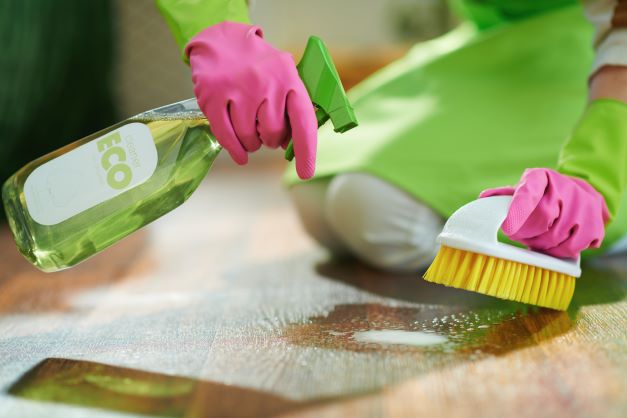Traditional cleaning products have long been household staples, promising sparkling surfaces and sanitized spaces. However, amidst this convenience lies a hidden cost – the significant environmental impact of these products. In this blog, we’ll delve into the various facets of this impact, from their composition to their implications for our planet.
The Composition of Traditional Cleaning Products
Traditional cleaning products often contain a cocktail of chemicals, including ammonia, bleach, and phosphates. While effective at cleaning, these substances pose risks to both human health and the environment. Unfortunately, many product labels lack transparency, leaving consumers unaware of the potential hazards lurking beneath their sinks.
Pollution and Contamination
The use of traditional cleaning products contributes to pollution and contamination in various ways. Chemical runoff from cleaning solutions finds its way into waterways, endangering aquatic ecosystems. Additionally, volatile organic compounds (VOCs) emitted during use contribute to air pollution, exacerbating respiratory issues and climate change.
Energy Consumption and Carbon Footprint
The environmental impact of traditional cleaning products extends beyond their use. Manufacturing processes consume significant amounts of energy, contributing to greenhouse gas emissions. Furthermore, transportation and distribution logistics add to their carbon footprint, making them a major contributor to climate change.
Waste Generation and Packaging
Single-use plastic packaging is ubiquitous in the cleaning product industry, contributing to the global plastic pollution crisis. Disposal of these products presents significant challenges, with much of it ending up in landfills or oceans. Sustainable packaging alternatives are urgently needed to mitigate this environmental burden.
Health Implications for Humans and Wildlife
Beyond environmental concerns, traditional cleaning products also pose health risks to humans and wildlife. Exposure to toxic chemicals can lead to respiratory problems, allergic reactions, and even long-term health effects. Aquatic life is particularly vulnerable, with chemical pollutants disrupting ecosystems and threatening biodiversity.
Regulatory Framework and Industry Initiatives
While some regulations exist to ensure the safety of cleaning products, they often fall short of addressing their environmental impact comprehensively. Voluntary initiatives for sustainable practices have emerged, but stricter regulations and increased consumer awareness are needed to drive meaningful change in the industry.
Transitioning to Eco-Friendly Cleaning Alternatives
Thankfully, eco-friendly alternatives to traditional cleaning products are becoming increasingly available. These products utilize natural and biodegradable ingredients, reducing their environmental footprint while still delivering effective cleaning power. DIY cleaning solutions also offer a sustainable and cost-effective alternative for those looking to minimize their impact.
Tips for Reducing Environmental Impact
As consumers, there are steps we can take to reduce the environmental impact of our cleaning routines. Reading labels and choosing environmentally friendly products is a crucial first step, as is using products sparingly and following recommended dosages. Proper disposal and recycling practices further contribute to minimizing our carbon footprint.
Takeaway
The environmental impact of traditional cleaning products is undeniable, but it’s not too late to make a change. By transitioning to eco-friendly alternatives and adopting sustainable cleaning practices, we can lessen our impact on the planet and create a healthier environment for future generations. Let’s take action today to ensure a cleaner, greener tomorrow.
Discover the power of Click n’ Clean in revolutionizing your cleaning routine. Choose the best in the business for a greener, cleaner home that you and your family deserve.










